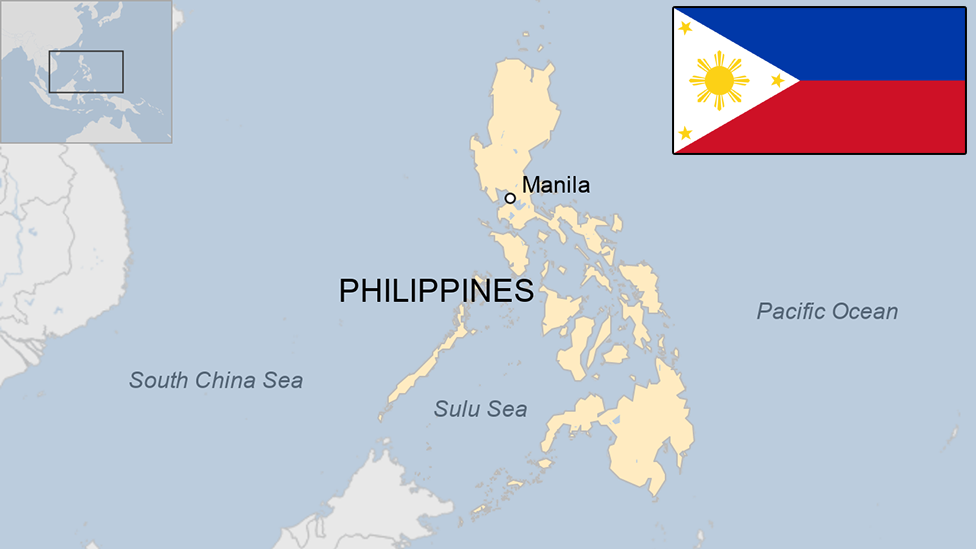Who will lead the Philippines?
- Published
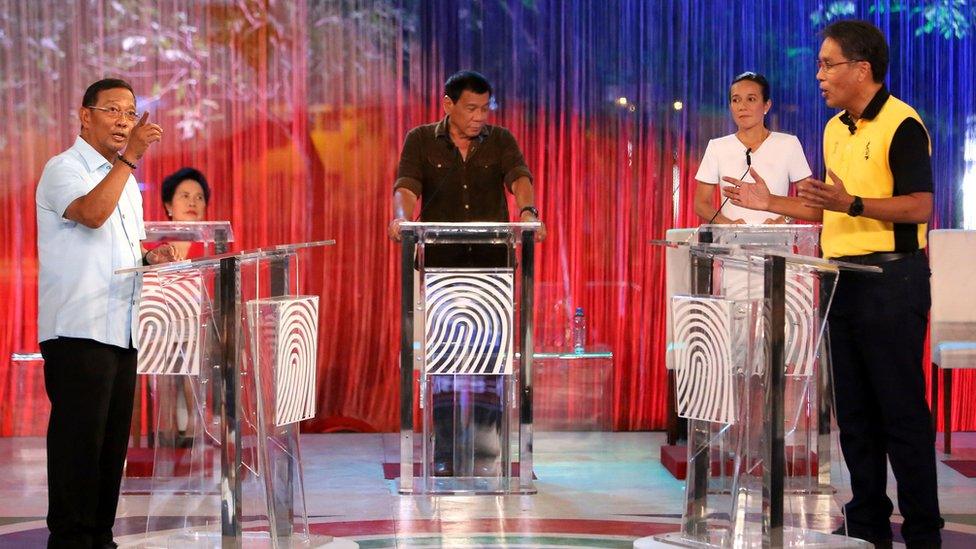
Presidential candidates debate at Phinma University of Pangasinan in Dagupan City, Philippines
As President Benigno Aquino III's term nears its end, Filipinos elect a new leader on 9 May, with self-declared socialist Rodrigo Duterte leading in opinion polls.
Despite enjoying economic growth, the country remains saddled with a decades-long conflict on the island of Mindanao, where some rebels have pledged allegiance to the so-called Islamic State.
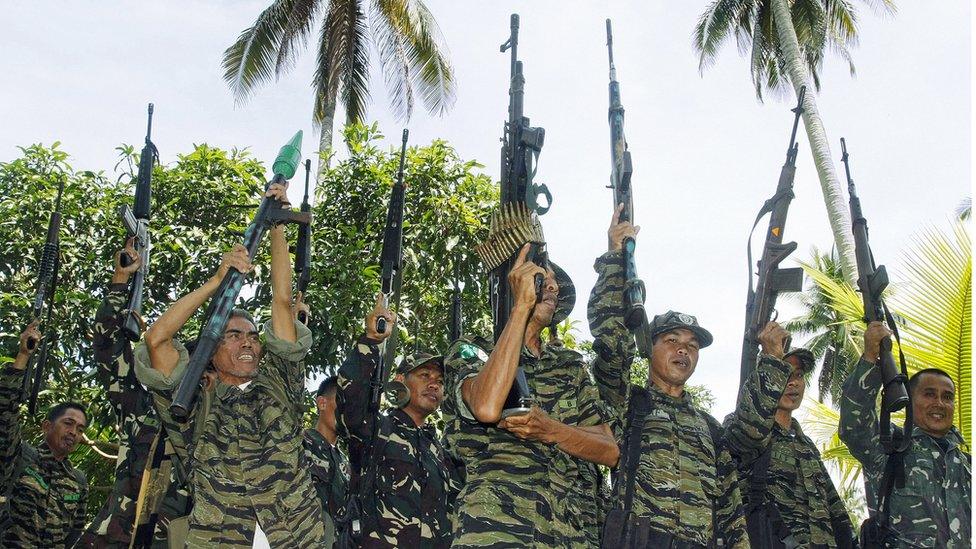
The Moro Islamic Liberation Front is pushing for the creation of an autonomous region for Muslims in Mindanao
Abroad, the country has clashed with China over disputed territory in the South China Sea, with international arbitrators set to rule on a case the Philippines has brought against China in the coming months.
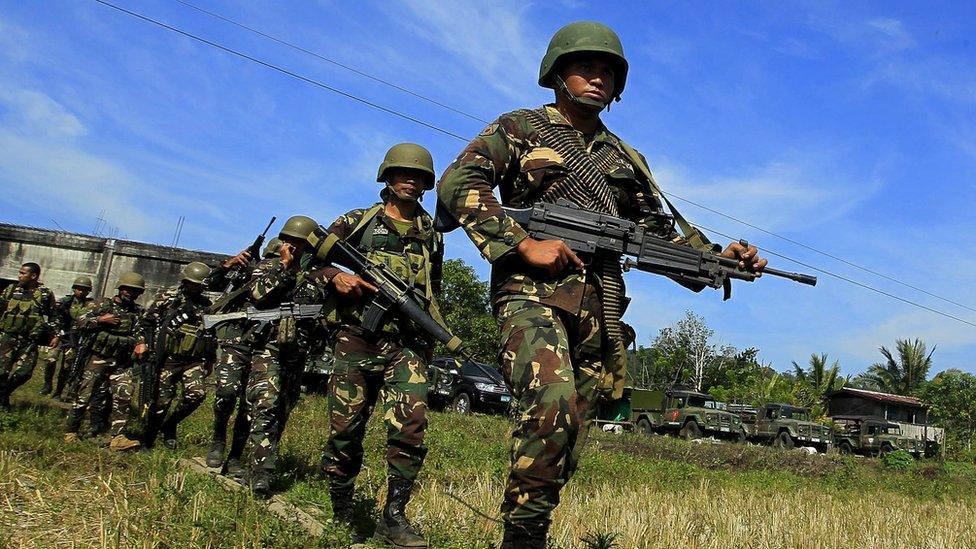
Philippine soldiers have been engaged in battle against Islamic militants in the south
The candidates have been campaigning hard.
Rodrigo Duterte
Known for using bad language on the campaign trail, Mr Duterte is nicknamed "The Punisher" for his tough approach to fighting crime.
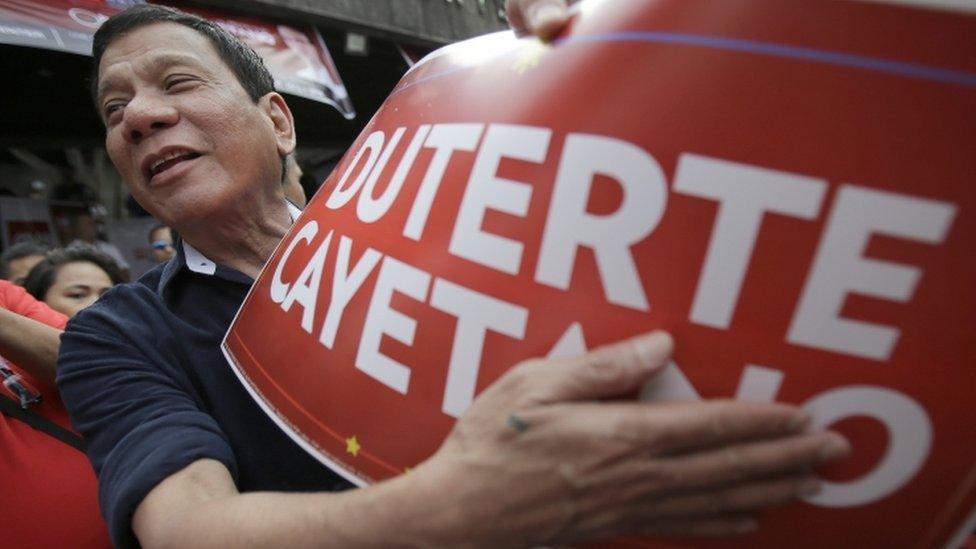
Recent opinion polls indicate Rodrigo Duterte is the favourite for the presidency
He claims he will rid the country of corruption and illegal drugs within six months.
A former state prosecutor, he has been mayor of the southern city of Davao for more than 22 years.
Mr Duterte says the stalled peace process in Mindanao must include more rebel groups and address injustices committed against Muslims.
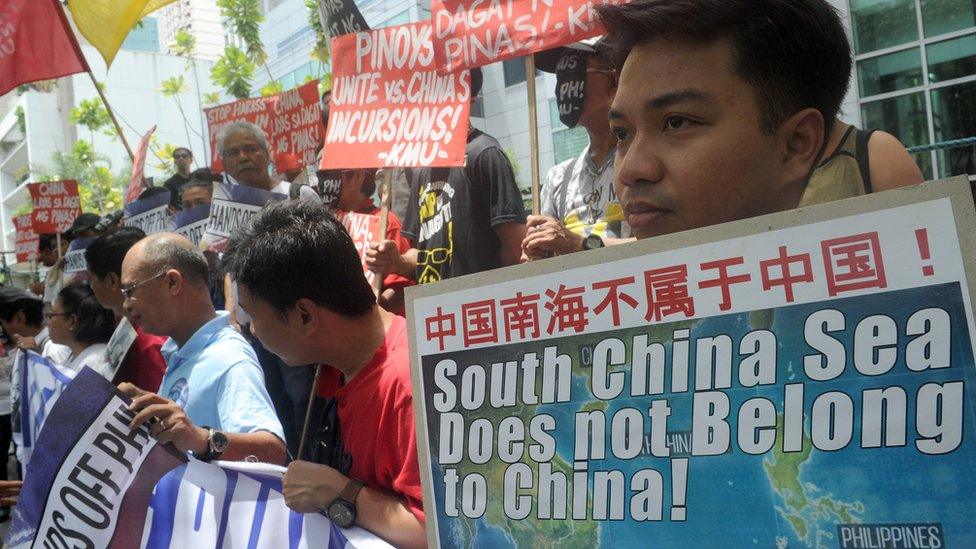
The South China Sea has been a source of tension between the Philippines and China
He also wants to scrap a deal allowing US military personnel to enter the Philippines for regular military exercises and questions America's commitment to protecting the country in its maritime dispute with China.
Duterte maintains that disputed areas in the South China Sea belong to the Philippines, but says he will not go to war with China over the issue.
Grace Poe
Adopted by film stars, Ms Poe moved to the USA where she became a pre-school teacher in the 1990s.
She returned to the Philippines in 2004 to help her adoptive father Fernando Poe Jr in his failed bid for the presidency.
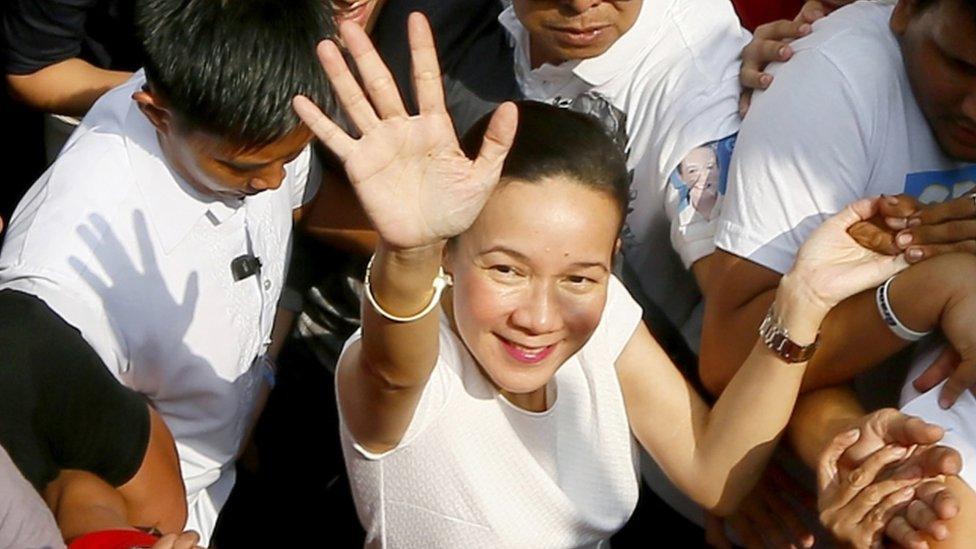
Grace Poe has overcome questions over her citizenship in her presidential campaign
He died shortly afterwards, prompting Ms Poe to launch her own political career and eventually become a senator.
Questions regarding her citizenship and residency in the Philippines threatened to derail the campaign, but the Supreme Court ruled in favour of her eligibility.
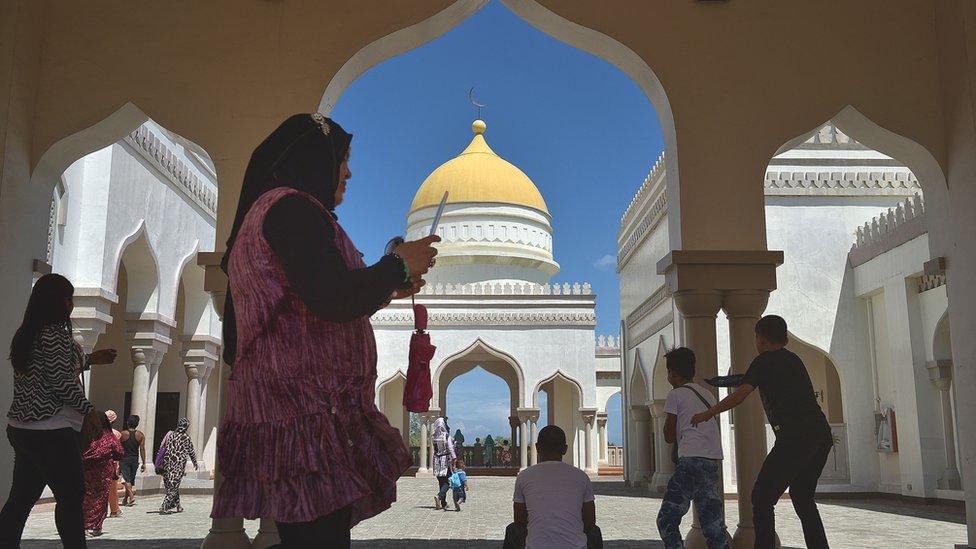
Grace Poe rejects the government's attempts to create an autonomous region for Muslims in the country's south
Ms Poe supports overhauling policies on addressing hunger and malnutrition and has campaigned against drugs and electoral fraud.
She rejects the government's stalled attempt to create a larger autonomous region for Muslims in Mindanao as she says it will lead to the creation of a separate state.
The senator wants the maritime dispute with China to be settled via international arbitration and has called for the two countries to develop their economic and cultural relations.
Mar Roxas
Mr Roxas hails from one of the country's political dynasties - his grandfather was the first president of the Philippine Republic. Mr Roxas' candidacy is endorsed by President Aquino.
Mr Roxas became an investment banker in New York but returned home to run for a congressional seat left vacant by the death of his brother.
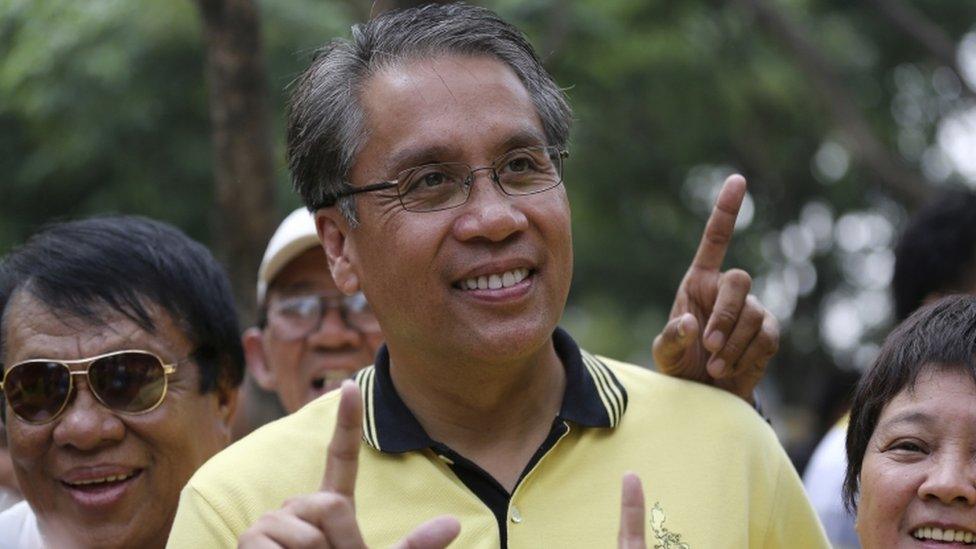
Mar Roxas has been endorsed by outgoing president President Benigno Aquino III
He developed a reputation for supporting small businesses during his time as secretary of trade and industry in the 2000s.
As interior secretary, he drew criticism for the government's response to Typhoon Haiyan of 2013, which killed thousands of Filipinos.
He pledges to address poverty and continue Aquino's policy of creating a larger autonomous region for Muslims in the south.
Welcoming US involvement in the South China Sea, he backs settling the dispute with China via international arbitration.
Jejomar Binay
Orphaned at the age of nine, Mr Binay became a human rights lawyer and was imprisoned for defending political prisoners during the rule of Ferdinand Marcos.
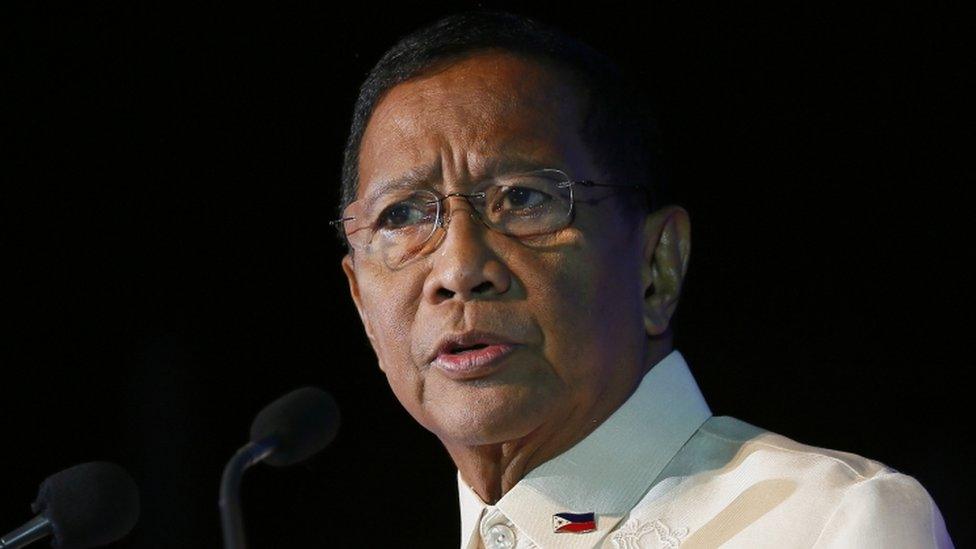
Jejomar Binay wants to improve relations with China
He served as mayor of Manila's financial district for over 20 years and became vice-president in 2010.
Mr Binay has been linked to several corruption scandals, but he says this is politically motivated.
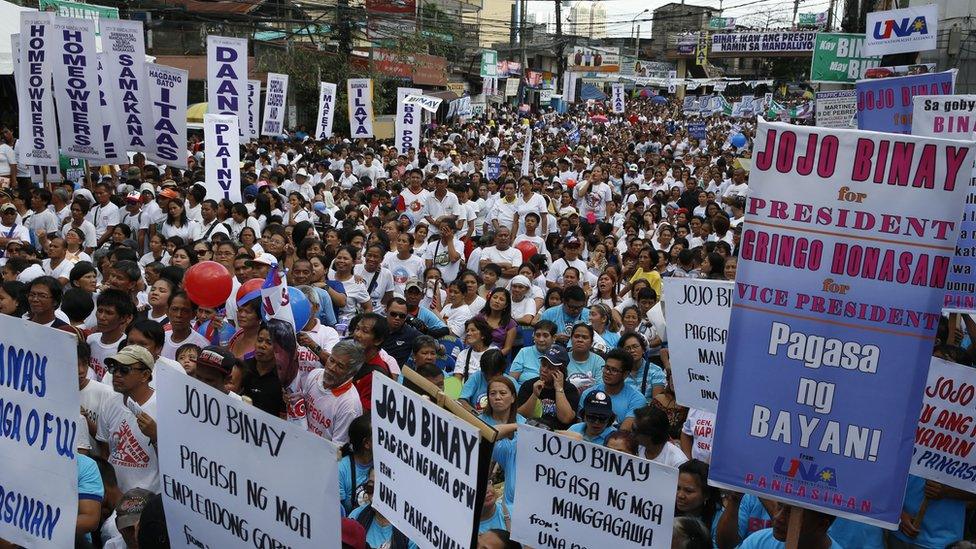
Supporters of Jejomar Binay in Mandaluyong city, Philippines
On Mindanao, he believes anti-poverty programs are the key to ending the conflict.
He is open to joint resource exploration with China in disputed areas of the South China Sea.
Miriam Defensor-Santiago
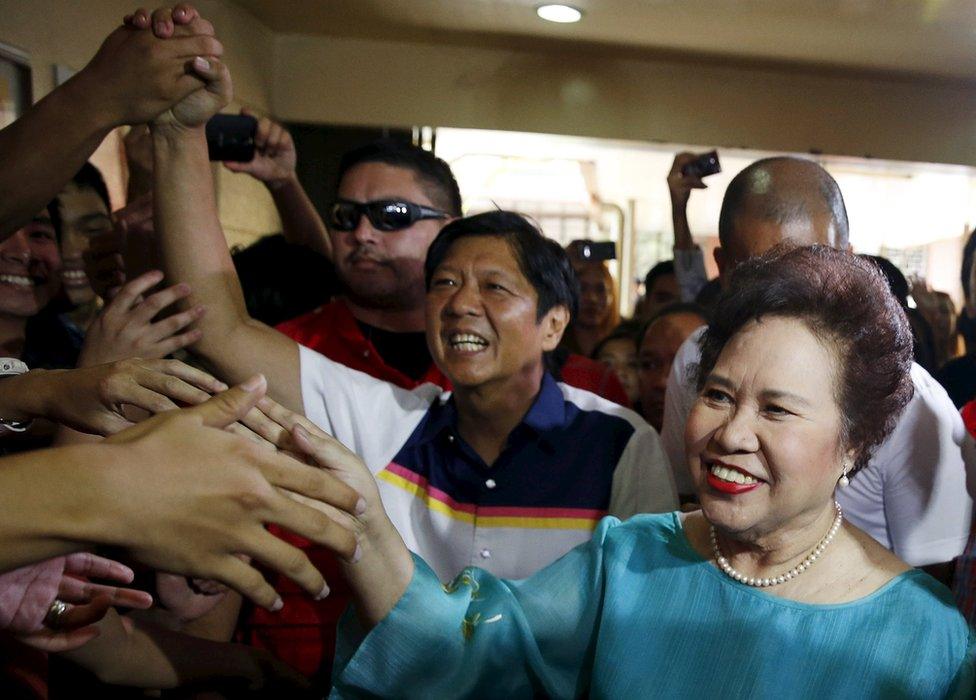
Ms Defensor-Santiago (foreground right) has controversially picked Ferdinand 'Bongbong' Marcos Jr (background centre) as her running mate
Ms Defensor-Santiago has had a long career in the public eye - a former judge, she has also been immigration commissioner and agrarian reform secretary during former President Corazon Aquino's term, and is now a senator.
In 2012, she was elected to be a judge of the International Criminal Court, which she had to eventually reject after discovering she had lung cancer at that time.
During this campaign she has been dogged by rumours that her health is failing as she continues to battle her illness, but she has declared she is in good health.
She has called for major government investment to fix the long-running problem of inadequate public infrastructure; as well as investment in the agriculture sector and tax reforms.
Controversially, she has also picked Ferdiand 'Bongbong' Marcos Jr, the son of infamous former president Ferdinand Marcos, as her running mate - the younger Marcos has been hit with allegations that he profited during his father's regime, which he has denied.
BBC Monitoring reports and analyses news from TV, radio, web and print media around the world. You can follow BBC Monitoring on Twitter, external and Facebook, external.
Related topics
- Published26 April 2016
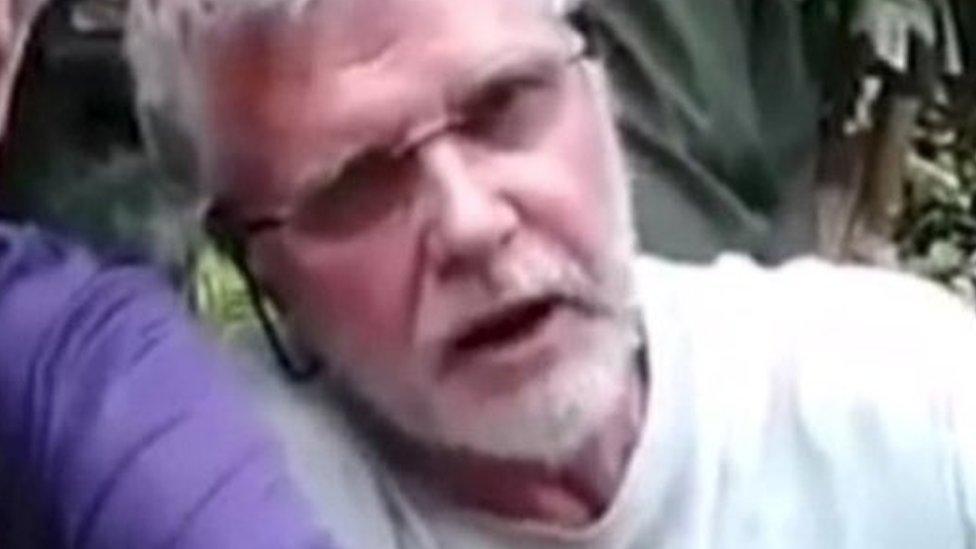
- Published14 June 2016
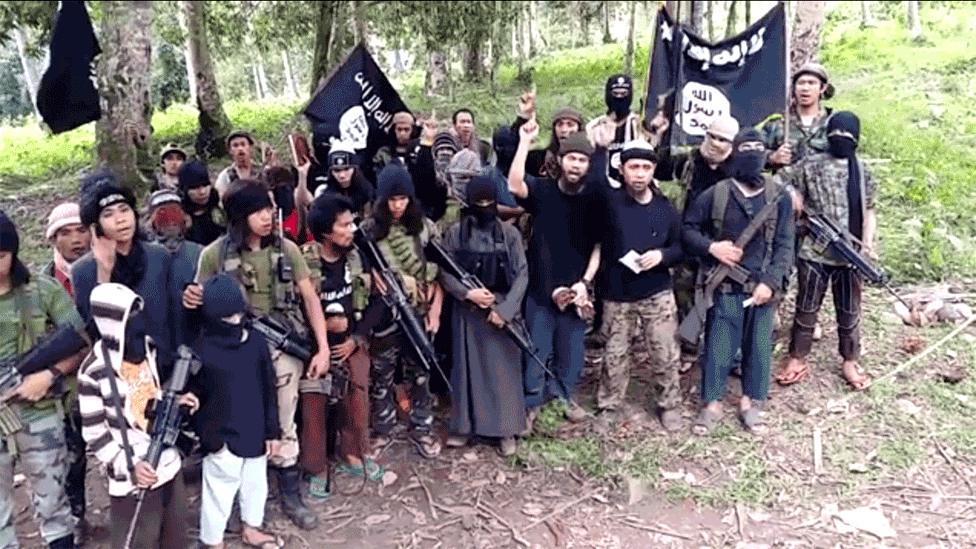
- Published7 July 2023
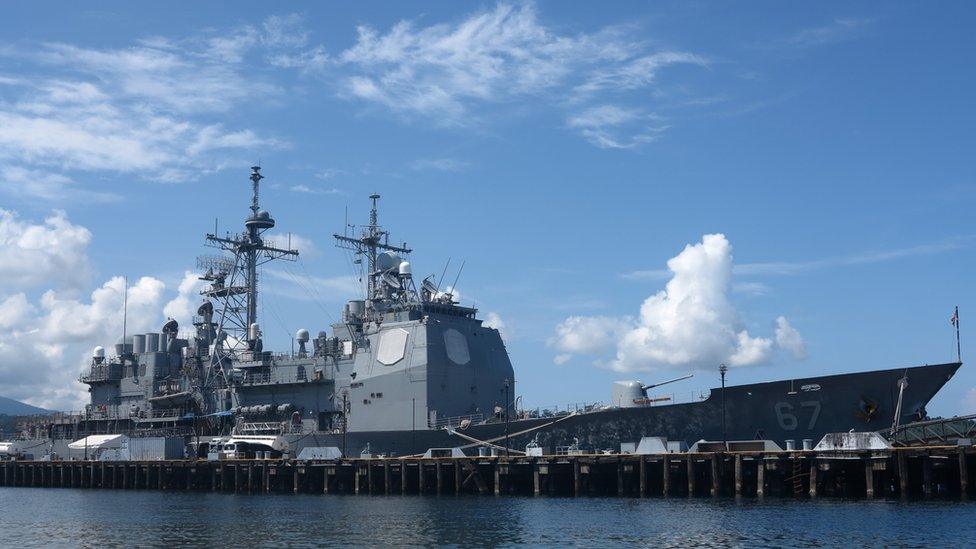
- Published6 April 2016
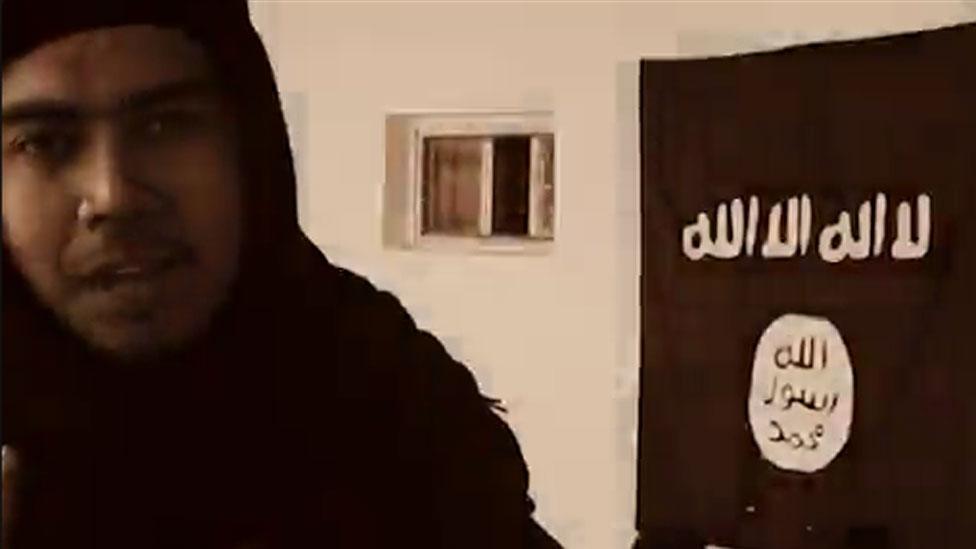
- Published5 July 2023
